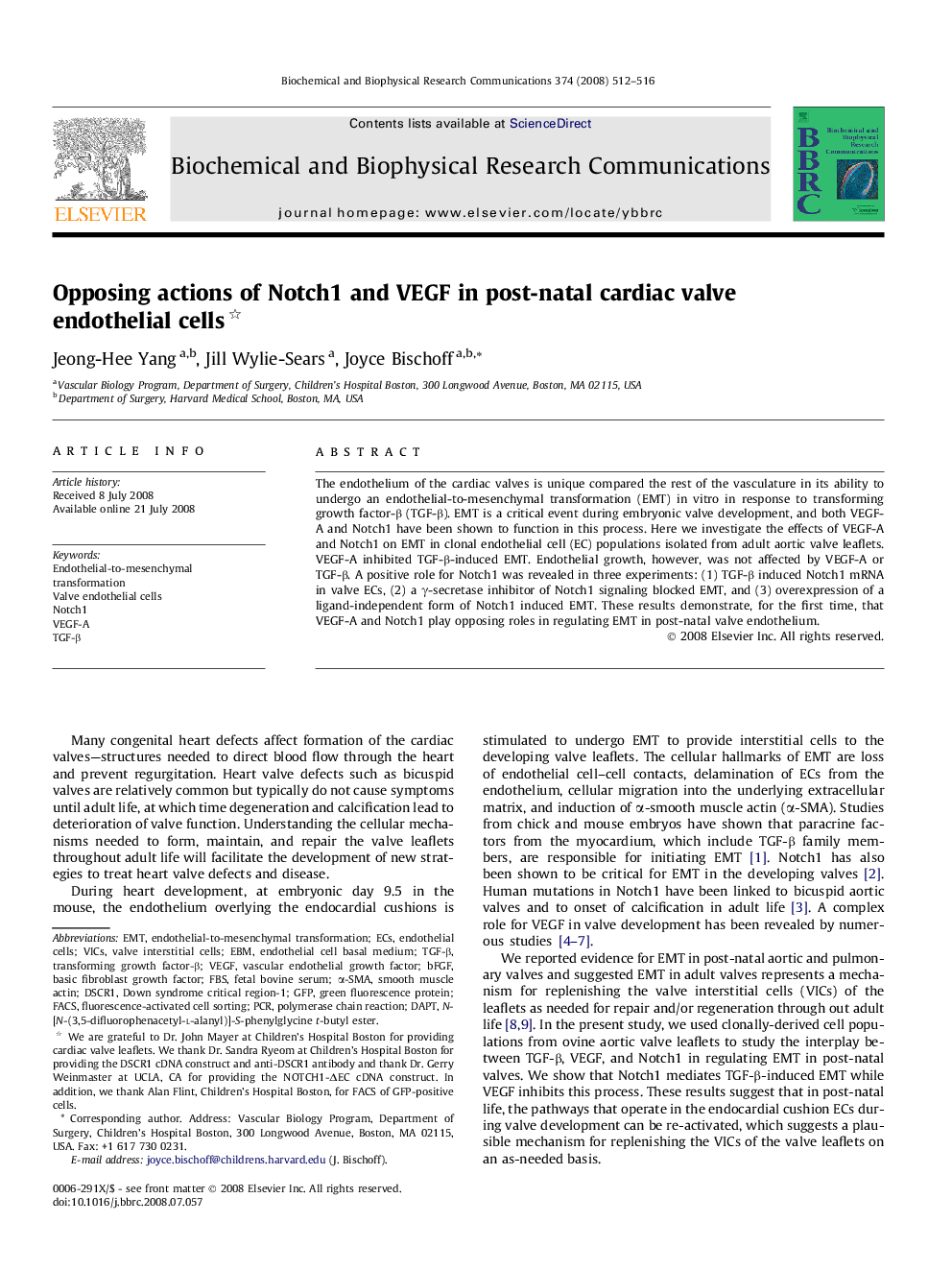| Article ID | Journal | Published Year | Pages | File Type |
|---|---|---|---|---|
| 1935451 | Biochemical and Biophysical Research Communications | 2008 | 5 Pages |
The endothelium of the cardiac valves is unique compared the rest of the vasculature in its ability to undergo an endothelial-to-mesenchymal transformation (EMT) in vitro in response to transforming growth factor-β (TGF-β). EMT is a critical event during embryonic valve development, and both VEGF-A and Notch1 have been shown to function in this process. Here we investigate the effects of VEGF-A and Notch1 on EMT in clonal endothelial cell (EC) populations isolated from adult aortic valve leaflets. VEGF-A inhibited TGF-β-induced EMT. Endothelial growth, however, was not affected by VEGF-A or TGF-β. A positive role for Notch1 was revealed in three experiments: (1) TGF-β induced Notch1 mRNA in valve ECs, (2) a γ-secretase inhibitor of Notch1 signaling blocked EMT, and (3) overexpression of a ligand-independent form of Notch1 induced EMT. These results demonstrate, for the first time, that VEGF-A and Notch1 play opposing roles in regulating EMT in post-natal valve endothelium.
